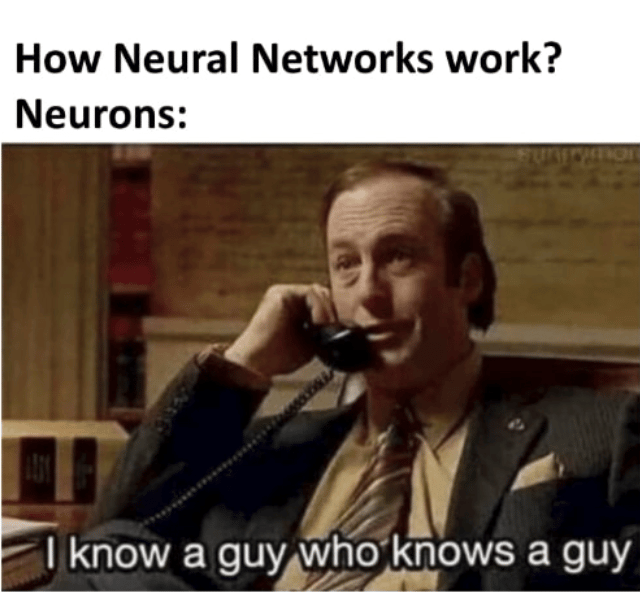
Good morning! What better way to start your week than to explore the freshest updates in the world of artificial intelligence? 🙌
Today’s Menu
Appetizer: Department of Defense introduces AI task force 🦾
Entrée: IBM’s new energy-efficient chip 👍
Dessert: AI is solving supply chain issues ⛓️
🔨 AI TOOLS OF THE DAY
💻 Lightrail: Offers a user-friendly interface for building webpages using various components.→ check it out
🤛 Bullet Points: Generates concise and informative briefs covering a wide range of topics. → check it out
🤔 Skeptical Tom: Encourages users to think twice before making impulsive purchases. → check it out
DEPARTMENT OF DEFENSE INTRODUCES AI TASK FORCE 🦾

National “defense” is being enhanced by AI … maybe the Dallas Cowboys could take some notes! 🏈
What’s up? The Department of Defense (DOD) has introduced a generative AI task force called “Task Force Lima”, a significant move that reflects the DOD's commitment to leveraging AI in a responsible and strategic manner.
Why? Spearheaded by Deputy Secretary of Defense Dr. Kathleen Hicks, Task Force Lima will operate under the Chief Digital and Artificial Intelligence Office (CDAO) and has been established to analyze and integrate generative AI tools, including large language models (LLMs), across the DOD's operations. Hicks expressed, “"As we navigate the transformative power of generative AI, our focus remains steadfast on ensuring national security, minimizing risks, and responsibly integrating these technologies. The future of defense is not just about adopting cutting-edge technologies, but doing so with foresight, responsibility, and a deep understanding of the broader implications for our nation."
What does this mean? The DOD's move into generative AI underscores the transformational potential of AI across sectors, especially in defense. By effectively utilizing generative AI models, the DOD aims to enhance various aspects of its operations, from war-fighting to administrative processes
IBM’S NEW ENERGY-EFFICIENT CHIP 👍

The AI chip game is hot right now, and IBM has a more energy-efficient solution.
What’s up? IBM has revealed a prototype chip with brain-like components that could revolutionize AI systems. The chip's design is inspired by the efficiency of the human brain, renowned for its remarkable performance while consuming minimal power. This innovation aims to address concerns about the energy consumption of AI warehouses, offering a solution that could significantly increase energy efficiency.
What makes this chip different? Unlike traditional digital chips, IBM's prototype employs analog components called “memristors”, which can store a range of numbers and mimic the synapses in the human brain. This technology, referred to as "nature-inspired computing," offers the potential for large and complex workloads to be executed in power-constrained environments, such as smartphones, cars, and cameras. Moreover, by implementing these chips, cloud providers could benefit from reduced energy costs and a smaller carbon footprint.
What does this mean? While the concept holds promise, experts like James Davenport, Professor of IT at the University of Bath, said IBM's findings were "potentially interesting" but warned that the chip was not an "easy to use" solution to the problem but more like "a possible first step." Challenges including material costs and manufacturing difficulties must be overcome before the technology becomes mainstream. Nonetheless, this prototype marks an important step toward more energy-efficient AI systems, potentially transforming various industries and helping conserve energy resources. 🙏
AI IS SOLVING SUPPLY CHAIN ISSUES ⛓️

Data/Graphics: Freightos
Following the COVID-19 pandemic, supply chain concerns have been on the rise. Does AI hold the solution? 🤖
What’s up? A new survey of 55 executives by logistics group Freightos has found that 96% of supply chain professionals are planning to implement AI technology in the “near future” although only 14% are currently utilizing its force.
Why? The disruptions caused by the COVID-19 pandemic and rising geopolitical tensions have underscored the importance of closely monitoring suppliers and customers. Additionally, countries like Germany have implemented new supply chain regulations, compelling companies to uphold environmental and human rights standards throughout their supply networks.
How can AI help? Incorporating AI into supply chain management is not new, but the advent of generative AI technology has opened up new possibilities for further automation. These technologies empower businesses to negotiate contracts, identify potential suppliers, and address critical issues such as alleged human rights abuses
What are the implications for jobs? About a third of surveyed companies believe AI’s integration into the supply chain could have a “significant” impact on job cuts. ✂️
MEME MONDAY 🤣



HAS AI REACHED SINGULARITY? CHECK OUT THE FRY METER BELOW

The White House crowd-sources national security solutions to AI companies. The Singularity meter ticks down ever so slightly.